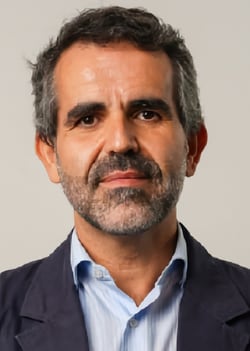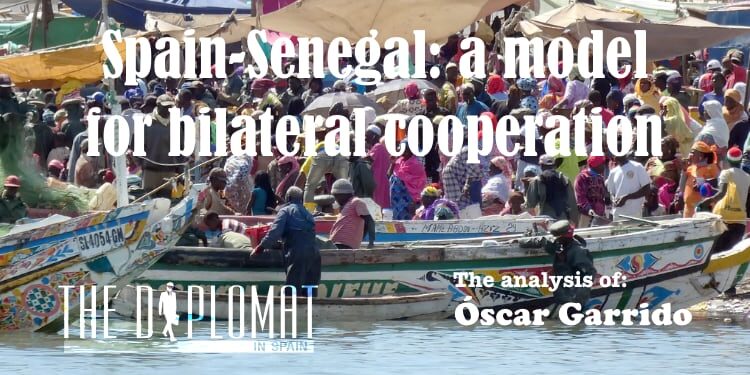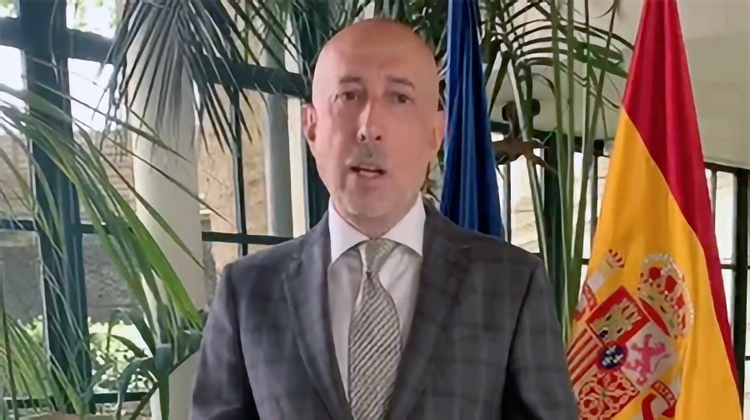SUMMARY
Over the last two decades, Spain has established itself in the western region of the African continent as a modest but reliable partner, with a mission to cooperate for the region’s increased social and economic well-being. Spain maintains the closest ties of cooperation with Senegal in almost all dimensions of its foreign policy action: diplomatic, commercial, security and defence, and cultural. In the background, behind the European Union’s external action, Spain is working to build a model of relations with West African countries that will allow it to occupy a place as a decisive actor that holds sway in the region. A model of its own that it can consolidate in its bilateral relations with Senegal and one that it can offer to other countries in the region that perceive Spanish foreign action in subSaharan Africa as beneficial.
Óscar Garrido Guijarro / IEEE
Spain has its eyes on Senegal. It is the sub-Saharan African state with which Spain has the closest cooperation in almost all dimensions of its foreign policy action: diplomatic, commercial, security and defence, and cultural.
Although Spain has not been a decisive actor in sub-Saharan Africa over the last two centuries, the country’s foreign policy objectives include expanding its presence in the Sahel and West Africa in general, and especially in Senegal. At a time when Western influence in the region, represented by France, is in clear decline, Spain has consolidated itself over the last twenty years in the western region of the African continent as a modest but reliable partner, with a mission to cooperate for the region’s increasing social and economic well-being. Moreover, Spain has demonstrated an ability to build relations between equals in the region while successfully avoiding being perceived as an actor with neo-colonial pretensions.
A comprehensive and structured strategy for Africa
Against the backdrop of the migrant boats crisis, the Ministry of Foreign Affairs and Cooperation approved the 1st Africa Plan in May 2006. It was a new plan that helped to alleviate the lack of a comprehensive and structured strategy in relations with the region. In addition to Latin America and the Maghreb, Spain now undertook to consider sub-Saharan Africa as a foreign policy priority. In 2006, 31,861 immigrants from Africa reached the Canary Islands, and the government considered that it had to work to organise migratory flows and that the best way of achieving this was to agree on appropriate regulatory frameworks with the countries of origin. Since then, the successive plans have become the working tool guiding relations between Spain and the countries of sub-Saharan Africa over the last two decades.
The first Africa Plan was followed by a second and a third. The latter contemplates the establishment of a strengthened partnership with Senegal in order to implement the actions and tools envisaged in the document as a pilot experience. In the same vein, Focus Africa 2023 was presented on 29 March 2021. This was the action programme of the 3rd Africa Plan, which highlights the importance of cooperating with Senegal in Spain’s African action. It is a country with which exchanges are particularly intense, which offers interesting potential for deepening the mutual bilateral relationship and is also strategic to the stability of the entire region, with an important role in the Economic Community of West African States.
Senegal has a population of about 18 million, but there are also three million people living abroad, the diaspora. Money in the form of remittances, which amounts to some 2.4 billion euros a year and represents 11% of the Gross Domestic Product, is key to the survival of hundreds of thousands of families.
As of 30 June 2024, there are 78,252 Senegalese nationals with valid residence documents in Spain. It is the second African nation with the second largest number of residents in Spain, behind Morocco with 823,408 residents. Seventy-eight percent of Senegalese citizens living in our country are men and 22% are women4. The Spanish provinces with the greatest presence of Senegalese citizens are Barcelona, Almería, Zaragoza, Madrid and Valencia.
In the EU, Spain ranks third after Italy and France in terms of the number of Senegalese citizens with residence permits, according to Eurostat data.
Regarding the number of Spaniards residing in Senegal, in 2024 there were 2,262 individuals according to data from the National Institute of Statistics.
There are currently 52,300 Senegalese citizens registered with Social Security in Spain. In 2020, Spain and Senegal signed a Bilateral Social Security Agreement that allows workers who have worked in both countries to add their Social Security contribution periods in both countries so they may be entitled to future Social Security benefits.
Conclusions
Although Spain has not had a long-standing presence in the region, the cooperation work it has carried out in recent decades has served to awaken Senegalese society’s confidence in Spain as a modest but reliable partner.
In the background, behind the European Union’s external action, Spain is painstakingly working to build a model of relations with West African countries that will allow it to occupy a position as a decisive actor that holds sway in the region. A model of its own that it can consolidate in its bilateral relations with Senegal and one that it can offer to other countries in the region that perceive Spanish foreign action in sub-Saharan Africa as beneficial.
© This text was originally published by the Spanish Institute for Strategic Studies (IEEE). If you wish to read the full version, follow this link
 Óscar Garrido Guijarro
Óscar Garrido Guijarro
Political analyst and journalist
Senior analyst at the Spanish Institute for Strategic Studies (Ministry of Defense) in the area of Sub-Saharan Africa. He holds a degree in Journalism and Political Science, and a PhD in Peace and International Security from the Instituto Universitario Gutiérrez Mellado.






